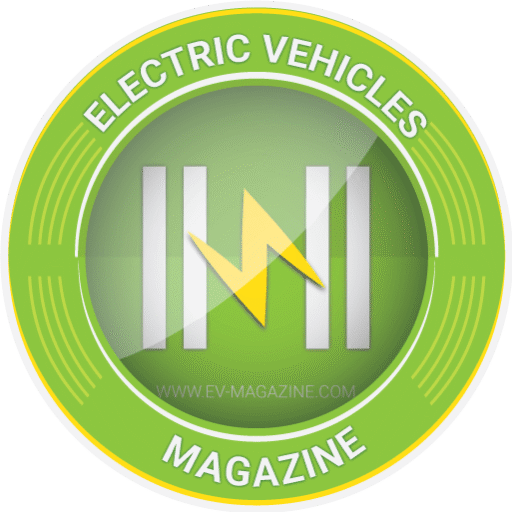“It’s our responsibility to continue to test, evaluate and provide feedback on alternatives that are available,” J.B. Hunt President Shelley Simpson tells attendees at an ACT Expo 2024 session. (Michael Freeze/Transport Topics)
[Stay on top of transportation news: Get TTNews in your inbox.]
LAS VEGAS — Shelley Simpson, president and incoming CEO of J.B. Hunt Transport Services Inc., encouraged attendees at the Advanced Clean Transportation Expo to be part of the solutions and innovation of sustainable transportation to make it economically viable.
Simpson spoke about the pressures the logistics industry faces to improve sustainability, and although it is a challenge, she said it’s “not really a bad thing.”
“I think all of us want to create a cleaner supply chain,” she said. “But the reason that we’re feeling the tension is because of some misalignment of sustainable technology policies to regulate emissions and an economic case for creating emerging technology.”
Simpson used the example of the juxtaposition between the California Air Resources Board’s Advanced Clean Fleets rule and the Environmental Protection Agency’s Phase 3, regulation that will take effect in 2027.
J.B. Hunt ranks No. 3 on the Transport Topics Top 100 list of the largest for-hire carriers in North America.
Shelley Simpson, president and incoming CEO of @jbhunt360, said the solution and innovation of sustainable transportation “are in this room” at @ACTExpo @TransportTopics pic.twitter.com/Yy0O8NxAWh
— Michael Freeze (@MichaelVFreeze) May 21, 2024
“CARB’s ACT rule began in 2024 while EPA Phase 3 starts with 2027 model year trucks,” she explained. “As each case is phased in, it allows more time for the technology to mature for heavy-duty trucks. But as state and federal requirements do not align, it does create issues with interstate operations and commerce.”
On how to assuage this problem, Simpson said the answer lies with the industry.
“The innovation required to meet these regulatory requirements is located in this room,” she proclaimed.
It’s our people, technology and capacity that allow us to provide a differentiated logistics experience for customers (no matter their size) and create long-term value for their business. Explore the J.B. Hunt difference! https://t.co/R4FSHyswVb
— J.B. Hunt 360 (@jbhunt360) May 21, 2024
Simpson noted that it is going to take a mix of solutions to make sustainability economically viable industrywide.
“Fleets, it’s our responsibility to continue to test, evaluate and provide feedback on alternatives that are available,” she said. “It’s certainly helped us improve our understanding of sustainable transportation, and it’s enabled customers to improve their sustainability metrics.”
J.B. Hunt, Simpson noted, set a carbon emissions goal of 32% by 2034 from a 2019 baseline. Simpson also stated that based on the fleet’s analysis, there are 7 million to 11 million shipments that could be converted to intermodal immediately.
Last week we celebrated the opening of our new Intermodal terminal in Edgerton, Kansas! We are so proud of the growth we’ve seen and loved being able to celebrate this new space with the entire team! pic.twitter.com/ZzqU40buvG
— J.B. Hunt 360 (@jbhunt360) May 20, 2024
“We’ve listened to the concerns that our shippers have around conversion, and we’ve created a service that addresses those concerns,” she said, referring to Quantum, an intermodal service formed in a partnership with BNSF Logistics last year. “This provides our customers with a service-sensitive, reliable transportation compared to hybrid transport that gives them the right agility, speed and overall cost savings.”
Simpson stressed the need for more internal discussions about alternative-fuel sustainability and what has to take place for the industry to move forward.
To retread or not to retread, that is the question. For some maintenance managers, the debate between purchasing new tires or retreads is constant. In this episode, host Michael Freeze finds answers about tires with Alex Aguilar, senior training specialist at Bridgestone Americas. Tune in above or by going to RoadSigns.ttnews.com.
“What is your appetite to invest in this space?” Simpson asked the crowd, adding that the realities of investment costs are daunting but necessary. She also noted the challenges including the perspective of how it would take, on average, the power of 600 homes to fast charge a single electric truck.
“If J.B. Hunt’s fleet was entirely electric, it would take the electricity of 1.4 million homes, 1% of the U.S., to power the fleet,” Simpson continued, bringing into focus the amount of energy needed for a sustainable electric vehicle infrastructure in the U.S.
However, she stayed optimistic about the industry’s sustainability goal.
“Reducing carbon intensity will require many solutions, and it will take all of us working together to create a better industry for a better future,” Simpson concluded. “We should consider the level of impact and associated costs so that we can continue to be economically sustainable.”
Want more news? Listen to today’s daily briefing below or go here for more info:
Source link
#Electrification #Challenges #J.B #Hunts #Simpson




